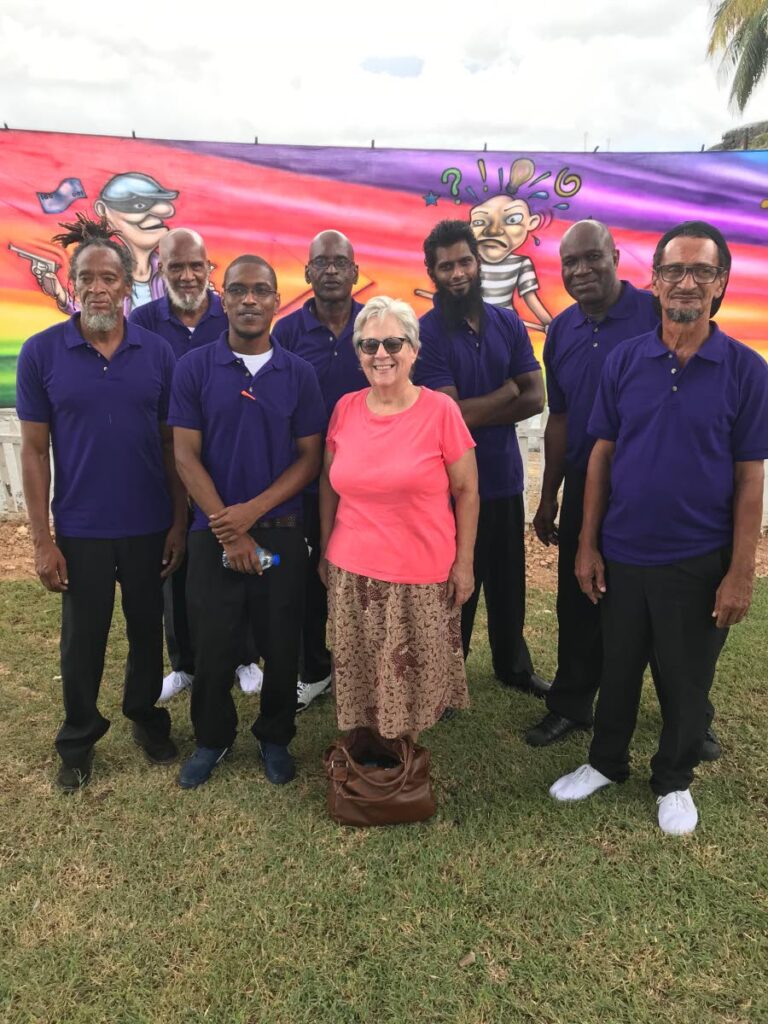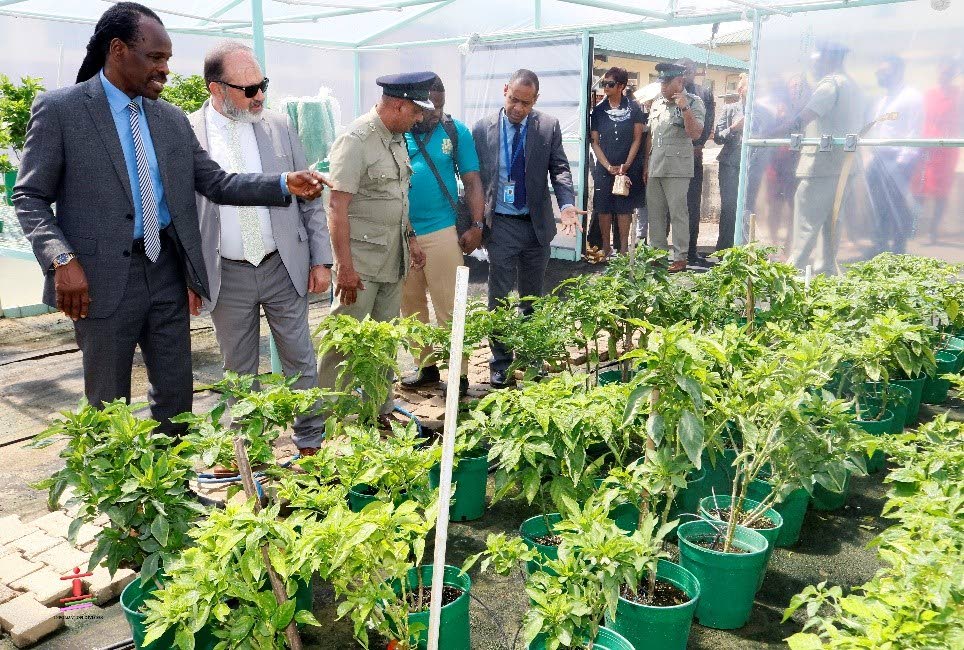NGOs question delay in restarting prison rehab programmes

Wishing For Wings founder, Newsday columnist and prison reform advocate Debbie Jacob says she has been unofficially prohibited from entering the prisons or interacting with inmates.
However, Commissioner of Prisons Deopersad Ramoutar denied the claims, saying he has dozens of requests on his desk, and Jacob’s, like many others, is under review.
Jacob told Sunday Newsday she was aware her requests to visit the prisons and correspond with inmates were getting turned down for some time, but had did not realised she was being blocked from interacting with the prisoners.
She explained that, in January, she wrote a letter asking for permission to have some of the men on the prison debate team, which she founded, write essays for a book on the making of the debate team, as well as to have some inmates who were taking part in the prison’s calypso competition write essays for an article.
More recently, she sent a request for interviews for articles on the gardening project in the women’s prison, and Romel Lezama, a resident of the Youth Training and Rehabilitation Centre who made it to the semifinals of the Calypso Monarch semi-finals. She has not had any response to her requests from the prisons.
Jacob explained that, during the height of the pandemic, "no outsiders" were allowed into prisons for safety reasons. But, since then, the restrictions had been relaxed.
She claimed one or two small programmes were allowed to be conducted by people outside the prisons but most kept getting postponed or cancelled. She added that those interested in leading programmes in the prisons used to be able to ask a superintendent or the programmes department for permission and would get a response almost immediately, but now, everything has to go through the office of the Commissioner of Prisons.
She said before covid19, she had got permission to open a barbershop at the Remand Prison, but was unsure when she would be able to do so.
“Supposedly, that permission still stands, but it just gets delayed all the time. And now, the guy who I was supposed to be working with on that has been transferred out of the programmes department and out of remand to the women’s prison.
“After the barbershop actually happens, I don’t think there’s anything else I’m going to do, because, after 15 years, I cannot take this any more. Every time a new person comes in, you don’t know what’s going to happen.
“It is always up to the whims and fancy of whoever is passing through. The Ministry of National Security needs to institute some kind of directive that when these people come in, that they can’t just get rid of programmes willy-nilly. It is holding back any progress and NGOs can’t accomplish anything.”
Maureen Clement, a facilitator of the music programme in the Maximum Security Prison as well as a religious programme called The Prisoners’ Journey at all prisons, is also concerned about the lack of response to requests to restart programmes.
She said after shutting down all the programmes in the prisons during covid19, NGOs were asked to resubmit documentation and proposals to restart them late last year.
“We had a meeting with the commissioner and he seemed okay, but still, nothing is happening. We heard from the programme department they would have started in January, but even churches who used to go in to do services, most of them have not gone in as far as I know. We’re still waiting.”
She intends to reach out to the prisons soon to see if she could restart her programmes in March, and if not, to find out what is causing the delay.

When Sunday Newsday asked Ramoutar about any ban imposed on Jacob, he said that information was false, and if people told her she was prohibited from the prison, they were “mischief-makers.”
He stressed that there were dozens of requests by “civilians” to run programmes in the various prisons and Jacob’s requests were under review, as were many others.
However, he said because of the covid19 protocols during the pandemic, many faith-based organisations and NGOs had to go through a learning curve to deliver the programmes online. The prisons also had to get devices for the inmates, some of which had to be acquired through sponsorship, causing delays.
As a result, prison officers were used to develop strong internal programmes.
“We have many officers who are professionals in particular fields, but because we had outsider providers volunteering their services, we chose to go the easier way.
“But covid has caused a betterment to the prisons service as regards to programmes administration. Because of the lockdown, we had to dig deep and we got officers who are practitioners and experts in various fields and they formulated programmes that had even more value and benefit that what we were getting before.”
He said about 60 officers from the programmes department were trained every month to be facilitators.
At the moment, the various prisons were running several internal programmes including anger management, leadership, critical thinking, knowing and understanding self, emotional intelligence, and parenting. There were also agriculture and trade programmes such as kitchen gardening, electrical, and plumbing, as well as cultural programmes and sporting programmes, including basketball and cricket competitions.
According to Ramoutar, that did not mean requests from civilians were being ignored.
Those volunteering their services were given top priority, but many proposals had a cost attached, and those had to be sent to the Ministry of National Security for approval. He said it made no sense to pay for something that was being volunteered free of charge.
“Inmates are rotated in our system. They don’t stay in one place forever. So every time someone makes a proposal, we have to do an assessment to see how relevant it is.”
He said sometimes programmes clashed, as there were multiple requests to hold similar programmes, or multiple programmes around the same time. Officers also had to screen inmates to ensure they were actually interested in the programmes and not using them as a way to go outside and mingle with civilians. The prison service also did not have enough staff to ensure the security of all the civilians in the prisons if all the civilian programmes were to restart.
He said the officers were doing a fantastic job with the little they had and were saving the State millions of dollars by doing so, with the help of training from various foreign embassies.
“It’s a very long process. We are doing the work of schools, churches, and organisations who failed the citizenry outside there and they end up in prison. When they come in the prison now, we try to reverse the damaging effects. In my term, I have introduced re-engineering of the way our inmates think and behave.”
He said prisons hada “fantastic rehabilitation programme” under his watch, as he had a bachelor’s degree in social work with minors in human resource management and psychology, a degree in sports psychology, and a master's degree in mediation studies, among other qualifications.
“I was once a welfare officer and I can tell you, in my 34 years of service, the majority of that service has been in the rehabilitation field. My skill sets are in line with re-engineering the human being. That’s my strength, and I have been influencing my officers and staff to think along those lines, and it's working.”

Comments
"NGOs question delay in restarting prison rehab programmes"